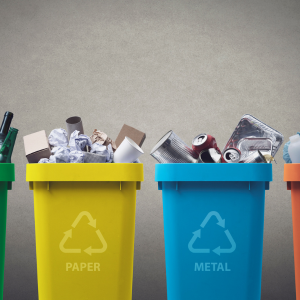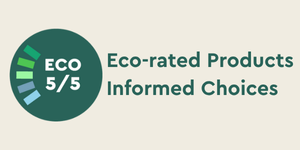How Small Changes Can Help You Hit Your Sustainability Targets
Sustainability can feel like a big, overwhelming task—especially when you're running a busy business and just trying to keep the bins emptied and the coffee flowing. But here's the good news: making real, measurable progress toward your sustainability goals doesn’t require a total overhaul. It’s often the small, consistent changes—like swapping your bin liners or choosing better paper towels—that add up to big wins over time. Whether you're a café, office, or warehouse, the steps you take today can have a lasting impact tomorrow (and your customers will love you for it).
Why Small Changes Matter in Business Sustainability
You don’t need to be Greta Thunberg with a clipboard to make a difference. Most businesses have areas of low-hanging fruit—simple tweaks that can slash waste, reduce costs, and boost your environmental credentials.
The Stats Speak for Themselves
-
65% of New Zealanders consider a company’s environmental reputation when making purchasing decisions (Colmar Brunton Better Futures Report).
-
40% of business waste can be diverted from landfill with basic recycling and composting practices (WasteMINZ).
-
Swapping to compostable packaging can reduce your carbon footprint by up to 75% depending on the product (BioPak LCA, 2021).
So yes—your choice of hand towels or takeaway containers does matter.
Actionable Strategies for Greener Operations
1. Audit Your Waste (Without the Snooze-Fest)
A quick weekly bin check is all it takes to spot unnecessary landfill offenders. Are compostables ending up in general waste? Could you reduce plastic packaging? Grab a cuppa and get curious.
2. Choose Smart Swaps
Start with these easy wins:
-
Paper Towels → Compostable Interfold Paper Towels
-
Gloves → Biodegradable Nitrile Gloves
-
Cleaning Products → Enzyme-based cleaners (less chemical nasties, still sparkle)
3. Buy in Bulk, Refill Often
Switching to bulk-fill soap dispensers or concentrated cleaners reduces packaging waste and delivery emissions. Bonus: it's often cheaper per use.
4. Support Local and Certified Suppliers
Look for suppliers (like us!) that stock NZ-made products, carry certifications, or transparently list their eco-credentials. Avoid greenwashing traps.
5. Educate Your Team—Without Boring Them Rigid
Use signage, bin labels, and cheeky reminders (we love a good pun) to make sustainability part of the daily routine.
Want a Quick Win? ✅
Download our Free Sustainability Checklist for businesses.
Get 12 simple steps you can action this month—no spreadsheets, just common sense.
|
✅ Sustainability Checklist: Small Changes, Big Impact Waste Reduction
Sustainable Cleaning Practices
Sustainable Food Service
Office and Staff Initiatives
|
Feel free to download this checklist and share it with your team to kickstart your sustainability journey. Small changes can lead to significant impacts!
Eco-Rated Products
We have developed an eco-rating logo to help you make informed decisions around the sustainability of the products you are looking at. Check out how we rate our products here and keep a look out for the logo on the product pages.
Final Thoughts
Sustainability doesn’t have to be all or nothing. With the right supplier (hint: it’s us), and a few thoughtful swaps, you can make a big impact—without flipping your operations upside down. It’s about progress, not perfection.
Posted: Monday 12 May 2025


